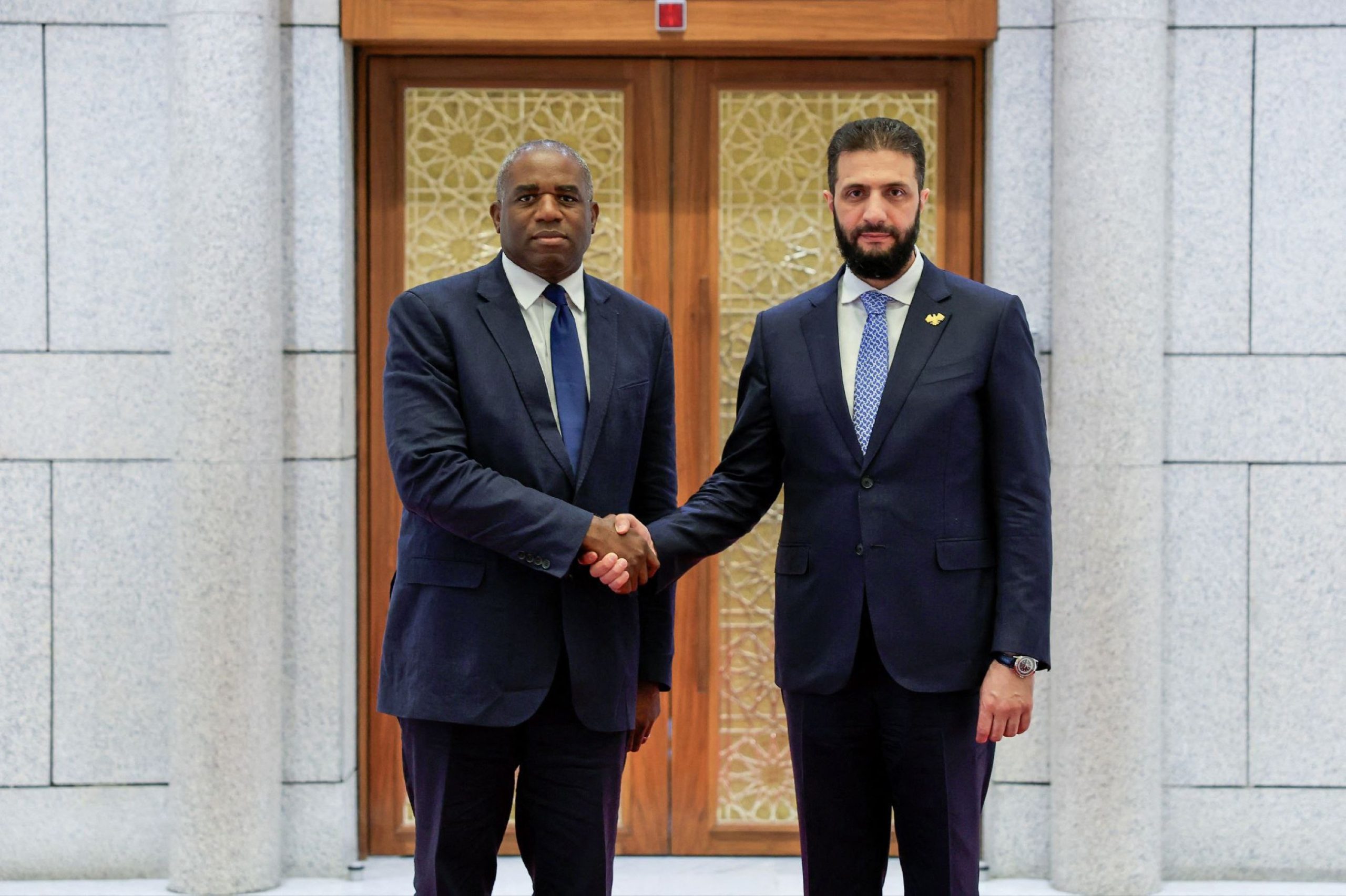In a major diplomatic development, the United Kingdom has officially reestablished diplomatic relations with Syria, marking a turning point in its foreign policy toward the war-torn country.
The announcement came during a historic visit by British Foreign Secretary David Lammy to Damascus, where he met with interim Syrian President Ahmed al-Sharaa and Foreign Minister Asaad al-Shaibani.
This visit, held on Saturday, July 5, 2025, represents the first official trip by a British minister to Syria in 14 years and signals a broader shift in Western engagement with the Syrian government following the ousting of longtime president Bashar al-Assad in late 2024.
Speaking after the meeting, Lammy described the trip as a “moment of renewed hope” for the Syrian people, emphasizing the UK’s support for the country’s transitional leadership.
“After over a decade of conflict, there is renewed hope for the Syrian people,” Lammy said in a statement.
“The UK is re-establishing diplomatic relations because it is in our interests to support the new government to deliver their commitment to build a stable, more secure and prosperous future for all Syrians.”
Photographs released by the Syrian presidency showed Lammy alongside President al-Sharaa and Foreign Minister al-Shaibani, reflecting the beginning of a new chapter in UK-Syria relations.
The diplomatic thaw comes in the wake of sweeping political changes within Syria.
President Bashar al-Assad, who ruled the country for over two decades, was deposed in December 2024 after an offensive led by Ahmed al-Sharaa and the armed group Hayat Tahrir al-Sham (HTS).
The fall of Assad’s regime ended years of authoritarian rule and opened the door to potential reconciliation between Syria and the international community.
Following these dramatic developments, several Western nations have begun reconsidering their positions on Syria.
In April, the British government lifted sanctions on a dozen Syrian entities, including governmental departments and state-affiliated media outlets, in an effort to assist with post-Assad reconstruction.
This move followed the earlier removal of sanctions on more than 20 Syrian businesses, primarily in the banking and energy sectors.
The United States also recently took a significant step toward normalizing relations with the new Syrian leadership.
On Monday, U.S. President Donald Trump signed an executive order dismantling many of the sanctions that had been imposed during the Assad era.
These economic restrictions had long hampered Syria’s ability to recover and develop.
Syrian Foreign Minister Asaad al-Shaibani welcomed Washington’s move, calling it a long-overdue action that would allow the country to rebuild.
In a statement posted on social media platform X, al-Shaibani said, “This decision will open the door of long-awaited reconstruction and development.
It will lift the obstacle against economic recovery and open the country to the international community.”
Despite the renewed international engagement, Syria faces immense challenges.
The country is still reeling from nearly 14 years of civil war, a conflict that resulted in the deaths of approximately 500,000 people and the destruction of vast swaths of infrastructure.
Millions of Syrians remain displaced, both internally and as refugees abroad.
President al-Sharaa’s transitional government has promised to prioritize reconstruction, economic revitalization, and national reconciliation.
However, the road ahead is uncertain.
Many Syrians cautiously welcome the changes.
On the other hand, concerns remain about the durability of the current leadership and its ability to maintain stability in a nation fractured by years of war and sectarian division.
The UK’s reengagement with Syria is seen by analysts as both a pragmatic and strategic move.
With growing humanitarian needs and a new leadership in place, Western countries may be positioning themselves to influence the rebuilding process.
They may also help ensure that Syria’s future does not revert to authoritarianism or fall into further instability.
For now, Lammy’s visit symbolizes a major step toward reintegration and recovery for Syria.
Whether this new diplomatic chapter will lead to lasting peace and development remains to be seen, but it is clear that international actors are once again prepared to engage with Damascus after more than a decade of isolation.



